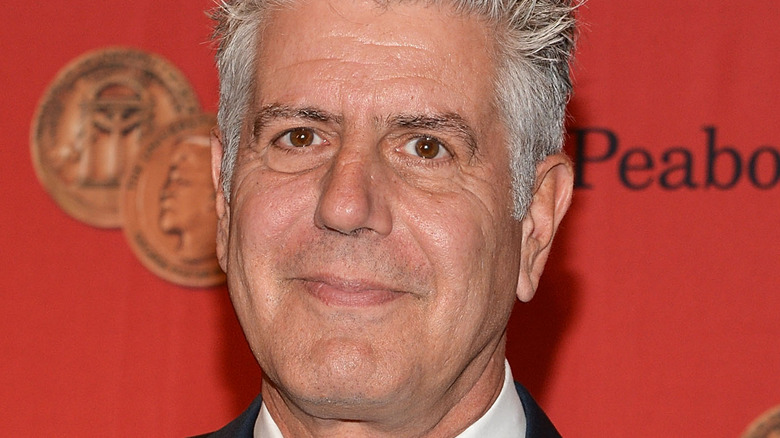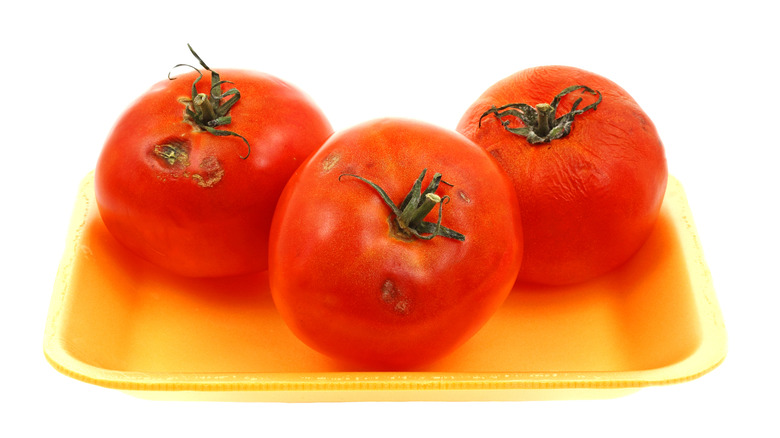How Anthony Bourdain Felt About 'Ugly' Food
Anthony Bourdain is known as the culinary master and television personality who brought us around the world in search of (and found) the best, often exotic, often outlandish cuisines. According to Food & Wine, Bourdain mentioned some of these gorgeous dishes, including "a perfectly fried whole artichoke in Rome, a pile of freshly cracked crabs in Seattle," and "a pornographic selection of cheeses in France," pictures of which he often posted on Instagram to make other diners jealous.
But what about food that's not so pretty? The late chef said it has just as much, and sometimes more, value. "[I] know that some of the most inherently delicious food has been pickled, butchered, braised, stewed, and/or charred in a way that maximizes flavor, visual appeal be damned," he said.
For instance, Bourdain cited his favorite dish in Singapore, char kway teow, as an example. "It's uniformly brown, greasy, mushy, and, in general, not a looker. But it's the first thing I go for in Singapore—or wherever else in the world I can find it," he said.
Anthony Bourdain painted an ugly picture of the future of food
In the Food & Wine article, Bourdain also pointed out that many "ugly" foods are foods that are steeped in ethnic cultures from around the world, which oftentimes have very specific and technical recipes that require quite a bit of talent to execute. "Sometimes, the 'ugly but good' guts are the glory," he said.
But the value of ugly food goes beyond tasting good. An article shared by Thrillist explored Bourdain's commitment to reducing food waste, some of which he claimed had to do with consumers' obsession with buying "pretty" food. Bourdain claimed that 30% of food in grocery stores will be thrown away, a number he calls "horrifying." He called shoppers to ask for ugly food when selecting their produce and for fellow chefs to lead the ugly food revolution.
"The fact is, if enough chefs make ugly tomatoes cool, everybody's going to want cool tomatoes. Ugly tomatoes. That's going to be the big thing. Everybody's going to go to Whole Foods and say, 'These tomatoes aren't bruised enough. They're all symmetrical,'" Bourdain stated.

